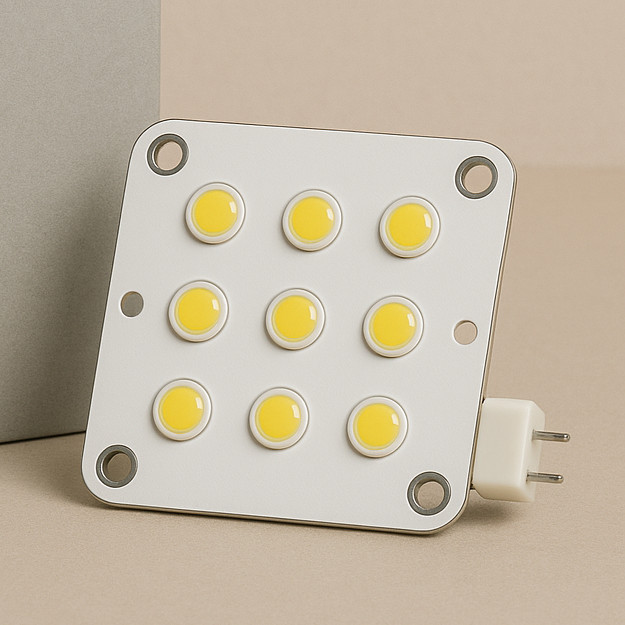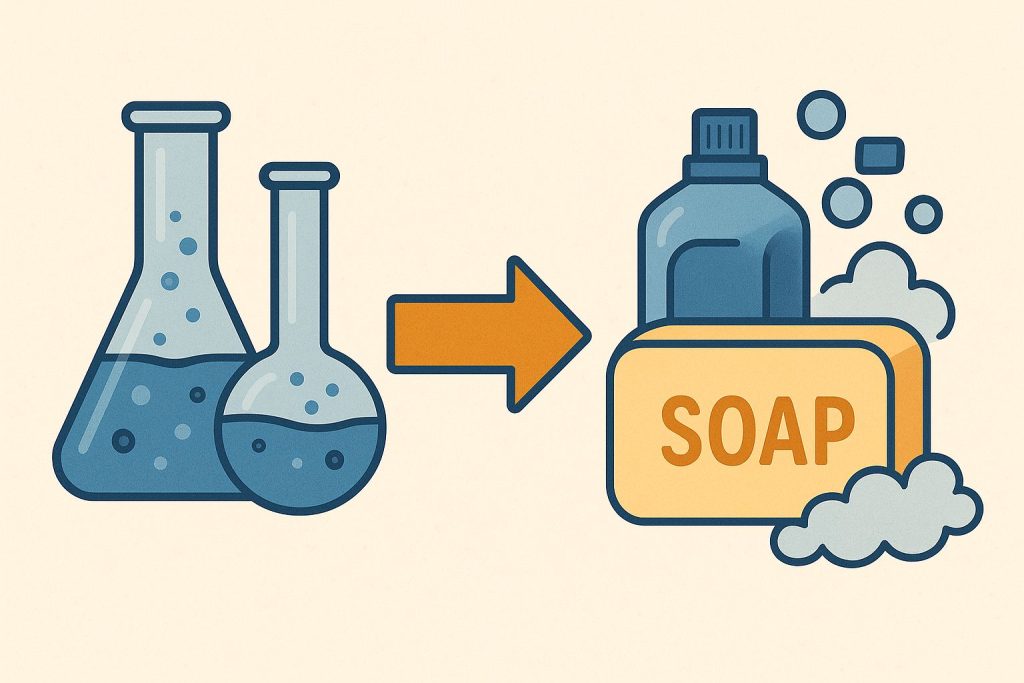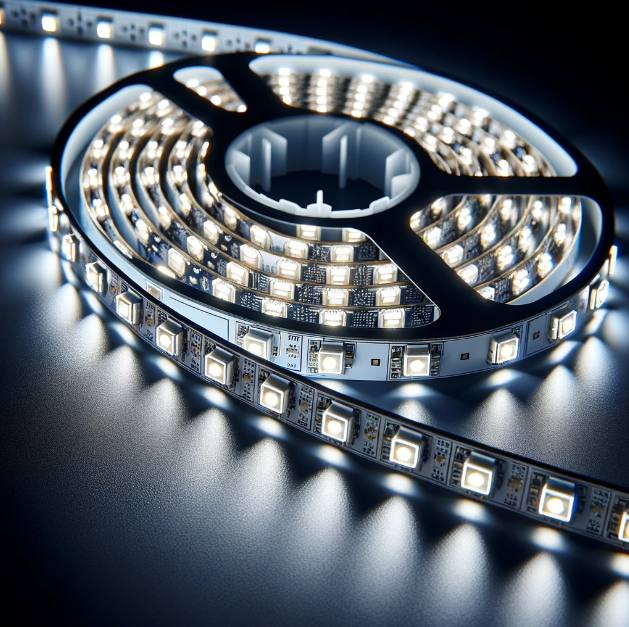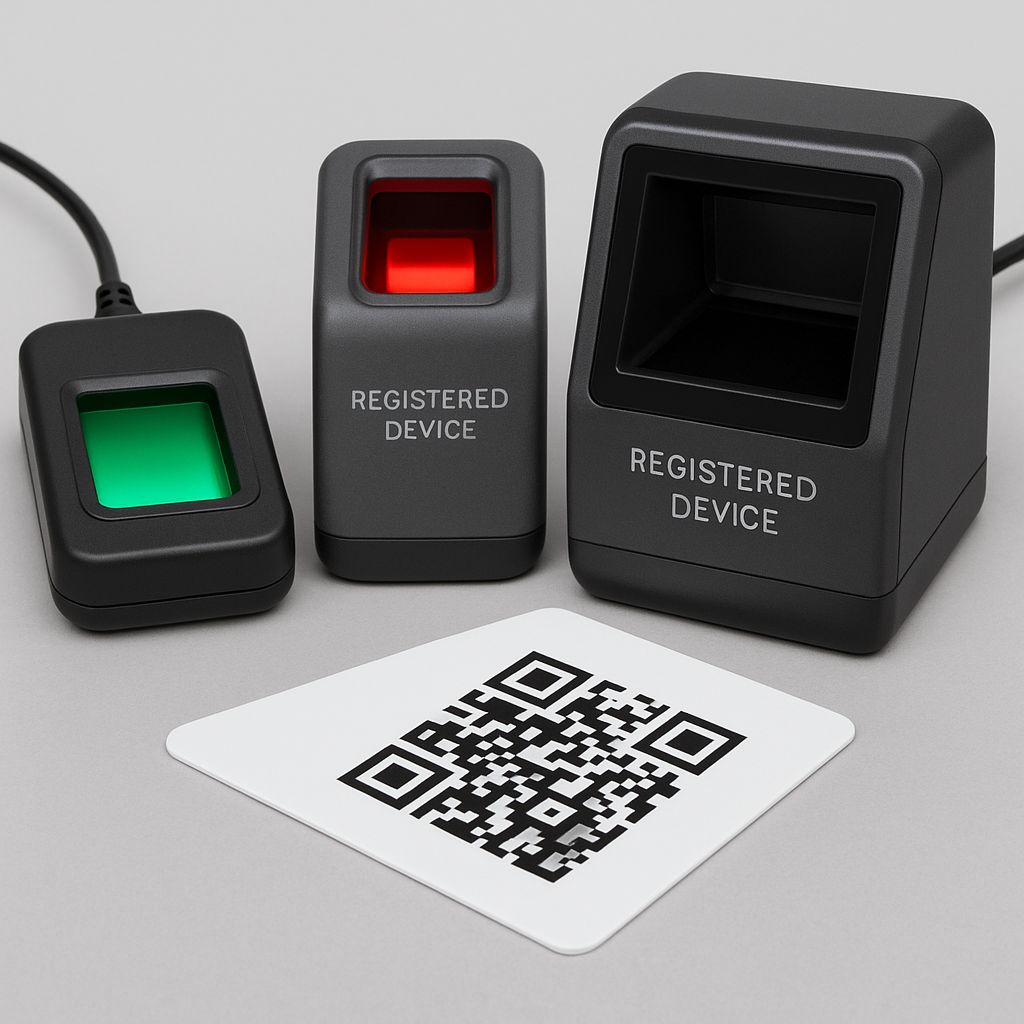BIS Issues New Safety and Marking Requirements for LED Modules
The Bureau of Indian Standards (BIS) has announced a revision of the standard governing LED modules used in general lighting applications. The updated regulation, IS 16103 (Part 1):2025 / IEC 62031:2018, replaces the previous version, IS 16103 (Part 1):2012, and will be enforced starting January 21, 2026. Key changes in the new standard include the introduction of definitions for various types of LED modules, updated marking requirements, the addition of safety tests such as abnormal temperature and photobiological safety testing, and changes related to voltage marking and luminaire design. After the implementation date, the previous version will be withdrawn and licenses not complying with the new requirements will be subject to cancellation. LED modules used in general lighting usually require BIS certification in order to be approved for import and sale in India.

BIS certification is a mandatory compliance system under Indian law to ensure product safety, quality, and performance. For electrical components like LED modules, manufacturers must demonstrate conformity with the applicable IS standards through testing by BIS-recognized laboratories. Both existing licensees and new applicants must align with the updated IS 16103 (Part 1):2025 standard before the final implementation date to obtain or retain certification for market access in India.
If you are interested in understanding what requirements are needed for your product to be imported into India, please do not hesitate to contact us by email or phone (Europe: +49-69-271 37 69 261, US: +1 773 654-2673). If a certification need is discovered we can provide a quotation to make sure that all your certification needs are covered.
If you have any questions you can also use our chat-window in the bottom right. (Please check your browser settings if you can’t see the window)
For more information about BIS certification, please refer to our free brochure “BIS Certification Made Easy“.
India Extends Implementation Dates for Polycarbonate, Ethylene Dichloride, Vinyl Chloride Monomer
The Department of Chemicals and Petrochemicals has officially extended the implementation dates for three Quality Control Orders (QCOs) under the Bureau of Indian Standards Act, 2016. According to the latest government notifications issued on 16 September 2025, the following QCOs will now take effect on 12 September 2026. The affected chemicals are Polycarbonate, Ethylene Dichloride and Vinyl Chloride Monomer.
Many chemicals require BIS Certification in order to be approved for import and sale into India.

If you are interested in understanding what requirements are needed for your product to be imported into India, please do not hesitate to contact us by email or phone (Europe: +49-69-271 37 69 261, US: +1 773 654-2673). If a certification need is discovered we can provide a quotation to make sure that all your certification needs are covered.
If you have any questions you can also use our chat-window in the bottom right. (Please check your browser settings if you can’t see the window)
For more information about BIS certification, please refer to our free brochure “BIS Certification Made Easy“.
India Revises Compliance Deadlines for Six Chemical Quality Control Orders
The Ministry of Chemicals and Fertilizers, through a series of notifications published in the Gazette of India on April 25, 2025, has amended the Quality Control Orders (QCOs) for several chemical substances. These include Lauric Acid, Acid Oil, Palm Fatty Acids, Rice Bran Fatty Acids, Coconut Fatty Acids, and Hydrogenated Rice Bran Fatty Acids. Each amendment introduces a revised enforcement date—now uniformly set to October 24, 2025. These updates follow consultations with the Bureau of Indian Standards (BIS) and are deemed necessary in the public interest under Section 16 of the BIS Act, 2016. The amendments are formal continuations of previously issued QCOs originally notified between 2022 and 2024. Many chemicals usually require BIS certification in order to be approved for import and sale in India.

If you are interested in understanding what requirements are needed for your product to be imported into India, please do not hesitate to contact us by email or phone (Europe: +49-69-271 37 69 261, US: +1 773 654-2673). If a certification need is discovered we can provide a quotation to make sure that all your certification needs are covered.
If you have any questions you can also use our chat-window in the bottom right. (Please check your browser settings if you can’t see the window)
For more information about BIS certification, please refer to our free brochure “BIS Certification Made Easy“.
BIS Revises Safety Standard for LED Modules, Sets Transition Deadline for Compliance
The Bureau of Indian Standards (BIS) has revised the safety standard IS 16103 (Part 1):2012 and reissued it as IS 16103 (Part 1):2025 / IEC 62031:2018. This updated standard governs safety requirements for LED modules used in general lighting. Notably, both the 2012 and 2025 versions will remain valid concurrently until January 21, 2026, after which the earlier version will be withdrawn.
LED lights usually require BIS certification in order to be approved for import and sale in India.

The revised standard introduces new definitions for replaceable, non-replaceable, and non-user-replaceable LED modules. The marking requirements have been overhauled, including changes to built-in module markings and working voltage indicators. Annexe B has been removed, and additional safety measures—such as abnormal temperature and photobiological safety tests—have been added. Licensees are required to submit updated test reports and declarations of compliance for their models. New applicants may apply under either standard until the deadline, provided they commit to transitioning to the 2025 edition. Changes to licence scope will follow the same rules as new applications.
If you are interested in understanding what requirements are needed for your product to be imported into India, please do not hesitate to contact us by email or phone (Europe: +49-69-271 37 69 261, US: +1 773 654-2673). If a certification need is discovered we can provide a quotation to make sure that all your certification needs are covered.
If you have any questions you can also use our chat-window in the bottom right. (Please check your browser settings if you can’t see the window)
For more information about BIS certification, please refer to our free brochure “BIS Certification Made Easy“.
Aadhaar 2025: L1 Certification now mandatory for all Registered Devices in India
As of January 1, 2025, only Level-1 (L1) certified Registered Devices (RD) are permitted for Aadhaar authentication in India. Aadhaar is the country’s national digital identity system, which uses biometric and demographic data to provide residents with a unique 12-digit identification number. This shift marks a full transition from the earlier Level-0 (L0) devices to the more secure and standardized L1 category. Manufacturers and importers are now required to complete the migration, which includes adapting firmware, secure element (SE) designs, and PCH components to meet the updated specifications. The Standardisation Testing and Quality Certification (STQC) authority oversees this transition and continues to operate the Biometric Device Certification Scheme (BDCS), which also includes certification processes for QR code scanners. RD devices usually require STQC certification in order to be approved for import and sale in India.

The move to L1 aims to strengthen the security and integrity of Aadhaar-based biometric authentication by enforcing uniform compliance across device hardware and software. Manufacturers must align with the latest guidelines issued by UIDAI, which define the updated performance and data protection standards under the Registered Devices 2.0 framework.
If you are interested in understanding what requirements are needed for your product to be imported into India, please do not hesitate to contact us by email or phone (Europe: +49-69-271 37 69 261, US: +1 773 654-2673). If a certification need is discovered we can provide a quotation to make sure that all your certification needs are covered.
If you have any questions you can also use our chat-window in the bottom right. (Please check your browser settings if you can’t see the window)




